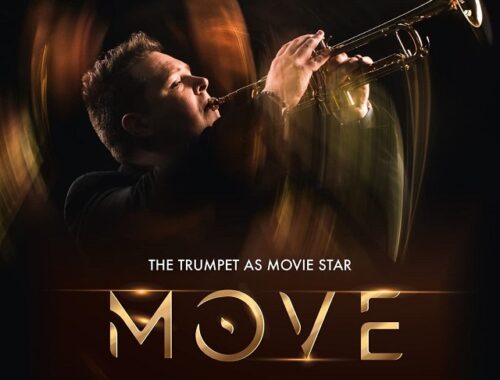GRAMOPHONE: From Where I Sit – December 2019
 What’s in a name? Plenty. The revival of the Sinfonia of London in such spectacular style with John Wilson’s glorious account of the Korngold Symphony is probably even more of a nostalgic occasion for me than it has been for Wilson. The name retained a kind of mystique for me throughout childhood. I wondered about this orchestra whose name didn’t conform to the familiar ‘philharmonic’ or ‘symphony’ branding, whose presence on the credits on film after film during the 50s and 60s (I always waited for the composer credit often hazarding a guess as to whom it might be) intrigued me. Why did they never give concerts? Who were the players?
What’s in a name? Plenty. The revival of the Sinfonia of London in such spectacular style with John Wilson’s glorious account of the Korngold Symphony is probably even more of a nostalgic occasion for me than it has been for Wilson. The name retained a kind of mystique for me throughout childhood. I wondered about this orchestra whose name didn’t conform to the familiar ‘philharmonic’ or ‘symphony’ branding, whose presence on the credits on film after film during the 50s and 60s (I always waited for the composer credit often hazarding a guess as to whom it might be) intrigued me. Why did they never give concerts? Who were the players?
There was something else, too. As a young film and classical music enthusiast I grew up thinking that the scores performed by a named orchestra had a certain cachet. At school we had been shown Sir Alexander Korda’s adaptation of H G Wells’ Things to Come and the three names on the music credit – Sir Arthur Bliss, the London Symphony Orchestra, and Muir Mathieson (Korda’s Scottish music director) – seemed to me so grand a triumvirate for a mere movie. It hadn’t occurred to me then that the pursuit of lucrative ‘commercial’ work might later come to be regarded as outside or even beneath the remit of the great symphony orchestras, that there might even be something of a stigma associated with such work. The formation of the Sinfonia of London in 1955 was in some small way an attempt both to circumvent that stigma and give musicians from orchestra like the London Symphony a free rein in pursuing those lucrative contracts. It seems so ironical now that the advent of Star Wars (1977) and the LSO’s much-trumpeted involvement in it would prove to be such a badge of honour for the orchestra the world over.
I mentioned Muir Mathieson earlier. It cannot be underestimated what he did to alleviate the stigma of commercialism and involve the great and the good of music in the creative process of making movies. That he succeeded in luring the most eminent British composers of the day – Walton, Vaughan-Williams, Addinesell, Alwyn, Bax – to the silver screen speaks volumes. His was the name most familiar to me from childhood and imagine my thrill as a teenager in finding him at the helm of The Ernest Read Orchestra where I briefly wreaked havoc as a percussion player.
I can recall a performance of Elgar’s Cockaigne Overture where I enthusiastically took charge of the bass drum part. During the rehearsal Mathieson called out to me: ‘Mr bass drum – I relish your vigour but be aware that we need the instrument intact for the performance’. His words resonate still.
But resonating now is the string sound so familiar from John Wilson’s Hollywood escapades and brought to bear now on the late, late romantic effusions of Korngold’s Symphony in F-sharp. Concert masters and section principals rub shoulders in the reformed Sinfonia of London but it is the familiarity of the relationships within the orchestra and with their conductor that enables such freedom and unity of expression. The performance has a reach and imperative and effulgence that augurs well for when they next sit down together. Oh, and I too cherish Barbirolli’s disc of English String Music with unreasonable fervour.




